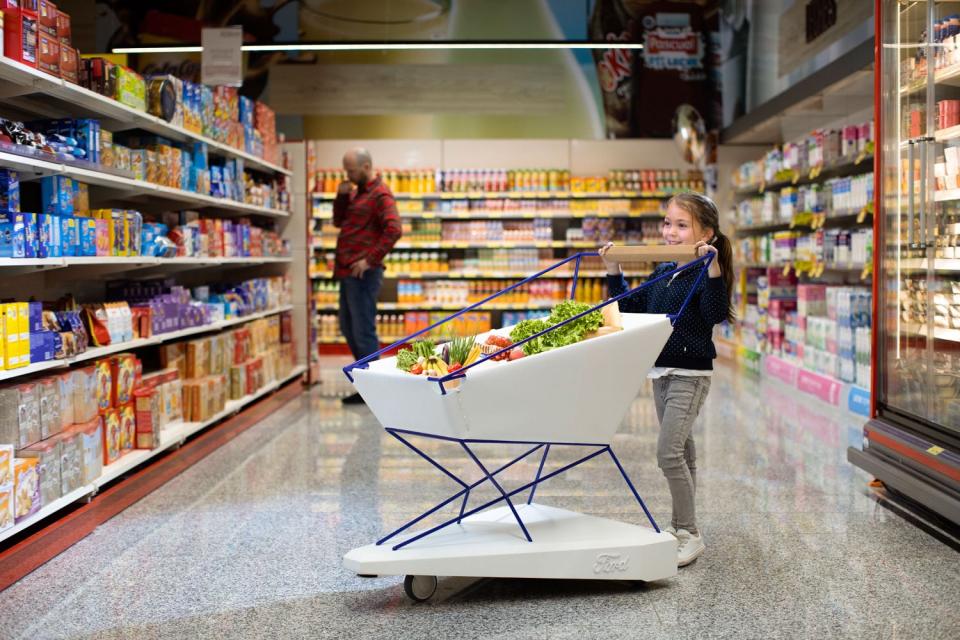This self-braking trolley is here to improve your supermarket shopping trip
Doing the weekly food shop is a stressful event for anyone, let alone parents, when you are forced to add a screaming child into the mix.
And, what about when your child hightails it off in a supermarket trolley when your back is turned?
Car maker Ford has been experimenting with some ways to improve the food shopping experience and has come up with a self-braking trolley prototype, drawing on its Pre-Collission Assist technology as a way to avoid accidents in the supermarket.
Ford has been using self-braking technology in its cars for a few years now. It works by using a forward-facing camera and radar to detect vehicles, pedestrians and cyclists in the road. It automatically applies the brakes if the driver doesn’t respond to warnings.
When it comes to the trolley, the self-braking tech works in a similar way, using sensors to scan ahead for people and objects, and will automatically apply the brakes if a potential accident is detected.

“Pre-Collision Assist technology can help our customers avoid accidents or mitigate the effects of being involved in a collision. We thought that showing how similar thinking could be applied to a shopping trolley would be a great way to highlight what can be a really useful technology for drivers,” said Anthony Ireson, director of marketing communications at Ford of Europe.
Tech companies are particularly keen to improve how people shop. Amazon’s Go stores feature sensors and cameras throughout the stores to scan when you pick up items and automatically bills your Amazon account, with no need for checkouts or queues.
US start-up Caper has designed an AI-powered trolley, which features sensors that identify the items and adds them to a virtual basket.
The self-braking trolley prototype is part of the Ford Interventions series which looks at applying different Ford technologies to everyday problems. Last year, the company came up with a prototype noise-cancelling kennel, designed to shield dogs from the overwhelming sounds of fireworks.
The kennel used a similar technology to the ones found in headphones and cars in order to protect doggy ears. In addition, it was made out of high-density cork, perfect for soundproofing.
Another Ford Interventions project was a “lane-keeping” bed, to keep couples on their respective sides of the bed to ensure they both were able to enjoy a good night’s sleep.

 Yahoo News
Yahoo News 
